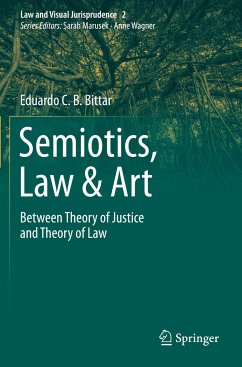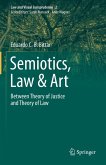This book presents an interdisciplinary study of the relation between semiotics, law & art. Focusing on Greimasian semiotics, it examines specific works of art (from Giotto to Banksy) that deal with the theme of justice, promoting a more sensitive and humanized perception of the values that surround law. The book offers readers a comprehensive review of the semiotics of law, critically examining the relation between law & art. It covers a variety of topics, including semiotics, law and art; semiotics, art and experience; and society, law and art, as well as semiotics, law and painting; semiotics, law and architecture; semiotics, law and theatre; semiotics, law and literature; and semiotics, law and culture. In doing so, it uses the semiotics of painting to explain the symbology of justice and its significance in history; the semiotics of architecture to explain the setting of justice; the semiotics of theatre to explain the logic of the legal process; and the semiotics of literature toexplain the narrative logic of legal decisions. Lastly, drawing on the semiotics of culture, it discusses ways of promoting justice, citizenship and human rights. Written from both philosophical and semiotical perspectives, the book enhances the centrality of visual jurisprudence studies to promote a better understanding of the role of law.








